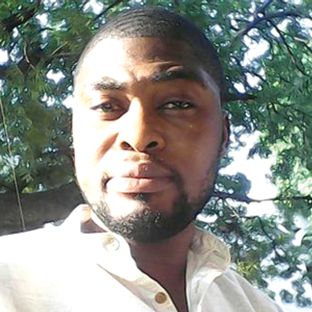
‘Let’s explore non-violent conflict resolution methods’
Ghanaians, particularly political leaders, have been urged to explore non-violent means of addressing conflict as it promotes peaceful co-existence.
The Coordinator of Satyagraha Institute, a body that promotes global peace through non-violent means, Mr Senyo Adeti, said the resort to violence was the reason vigilante groups were fast springing up in the country as tools for addressing conflicts rather than peaceful non-violent communication tools.
Advertisement
“Vigilante issues can’t be dealt with as a security strategy. It has to be a holistic solution which,” he told the Daily Graphic ahead of a training of trainer’s workshop on peace-building, non-violence and conflict resolution.
The Satyagraha Institute is premised on non-violent principles of India’s great leader, Mahatma Gandhi, which is now being propagated across the world.
The event
The one-week event, from March 4-10, 2019, to be held at the Suncity Garden Hotel at Adidome Bakpa in the Central Tongu District in the Volta Region, is expected to attract 35 participants from 14 countries in Africa.
The objectives of the workshop include equipping participants with the knowledge and skills in conflict resolution.
The participants will also learn how to create social change using the principles and tools of Satyagraha.
The event will be addressed by global peace building experts, including Mr Fernado H. Ferrara from Mexico; an activist from the USA, Mr T. Marie King; the Director of the School of Gandhian Thought and Development Studies in India, Prof. M. P. Mathai, and administrator and development worker, Ms Esther Ahmed Paya from India.
Gandhi’s positives
Since 2016, some members of the academic community in University of Ghana succeeded in making a case, and removed the statute of the famed Indian leader, Mahatma Gandhi’s statue from the university’s campus because of allegations of Gandhi’s alleged racist comments about black people while in South Africa.
But Mr Adeti said Gandhi, a known apostle of non-violence, had positive sides that could help the country strengthen national cohesion, peace, unity and conflict resolution.
“A community will change only to the extent that its individual members change. To the degree that we, as individuals, shift towards the ways of non-violence, we create ripples which alter the nature of our relationships, communities, and nations.
“For this reason, we subscribe to the practice of being the change we want to see. This programme provides time, space, and support for individuals to wrangle with the tools of non-violence and their assumptions about how change works,” he explained.
He said the Satyagraha Institute promoted the uplift of all persons by cultivating leadership in the pursuit of truth and non-violence.
“Political actors and leaders from all spheres of life can appreciate how they could go on demonstration, put their messages across without it ending in violence. Gandhi did a lot of these when he spent 21 years in South Africa,” he said.
He said being a leader was not just a matter of having great academic, business or political credentials but also having the prowess to engage followers in a manner that the most difficult issues that could degenerate into violence was resolved peacefully.



